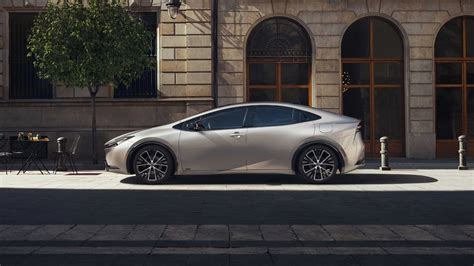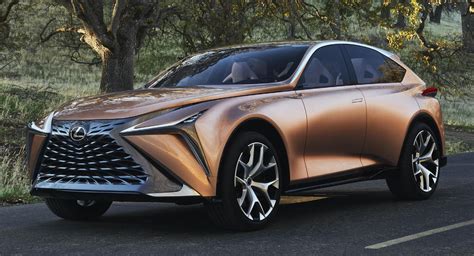
A new Japanese hybrid sedan is drawing comparisons to Lexus in terms of luxury and features, but at a significantly lower price point, potentially disrupting the entry-level luxury car market. The vehicle boasts a comfortable ride, quiet cabin, and impressive fuel economy, making it an attractive alternative to established luxury brands.
Japanese Hybrid Sedan Aims to Redefine Entry-Level Luxury, Challenging Lexus with Affordability
A new contender has emerged in the automotive market, a Japanese hybrid sedan generating buzz for its Lexus-like features and significantly lower price tag. This vehicle promises a luxurious experience without the premium cost, potentially reshaping the landscape of entry-level luxury cars.
According to the Yahoo! Autos article, the sedan distinguishes itself through a combination of comfort, a serene cabin environment, and exceptional fuel efficiency, positioning it as a compelling option for consumers seeking luxury features without breaking the bank. The article highlights the growing demand for vehicles that offer both premium amenities and environmental consciousness, and this hybrid sedan seems poised to capitalize on that trend.
Luxury Features at an Accessible Price
The allure of this Japanese hybrid lies in its ability to deliver a luxurious driving experience comparable to that of a Lexus, but at a fraction of the cost. The manufacturer has seemingly prioritized comfort, incorporating features that contribute to a smooth and enjoyable ride. The quiet cabin further enhances the sense of luxury, creating a serene environment for both driver and passengers.
Beyond comfort and tranquility, the hybrid powertrain contributes significantly to the vehicle’s appeal. By combining a gasoline engine with an electric motor, the sedan achieves remarkable fuel economy, reducing both running costs and environmental impact. This combination of luxury and efficiency is particularly attractive to environmentally conscious consumers who also desire a premium driving experience.
Design and Aesthetics
While the article does not explicitly delve into specific design elements, it implies a focus on sophisticated aesthetics. The comparison to Lexus suggests that the vehicle boasts a refined exterior design and a well-appointed interior. This emphasis on design is crucial in the entry-level luxury segment, where buyers often prioritize visual appeal and a sense of prestige.
The interior likely features high-quality materials, comfortable seating, and a user-friendly infotainment system. These elements contribute to the overall sense of luxury and refinement, setting the vehicle apart from more mainstream competitors.
Performance and Handling
The hybrid powertrain not only delivers exceptional fuel economy but also contributes to the vehicle’s performance. The electric motor provides instant torque, resulting in brisk acceleration and a responsive driving experience. The combination of electric and gasoline power also allows for smooth and seamless transitions between different driving modes.
The article suggests that the vehicle handles well, providing a confident and engaging driving experience. This is an important consideration for buyers in the entry-level luxury segment, who often prioritize both comfort and performance.
Market Impact and Competition
The arrival of this Japanese hybrid sedan has the potential to disrupt the established hierarchy of the entry-level luxury car market. By offering a comparable level of luxury at a lower price, the vehicle could attract buyers who are traditionally drawn to brands like Lexus, Acura, and Infiniti.
The vehicle’s hybrid powertrain also gives it a competitive advantage over some of its rivals. As environmental awareness continues to grow, demand for fuel-efficient vehicles is likely to increase, making the hybrid sedan an increasingly attractive option.
Future Outlook
The success of this Japanese hybrid sedan will depend on several factors, including its long-term reliability, the effectiveness of its marketing campaign, and the availability of dealer support. However, the vehicle’s combination of luxury, efficiency, and affordability makes it a strong contender in the entry-level luxury segment.
If the vehicle proves to be a success, it could pave the way for other manufacturers to develop similar models. This could lead to a more competitive and diverse market, ultimately benefiting consumers by providing them with a wider range of options.
Detailed Analysis and Expanded Context
To fully appreciate the significance of this new Japanese hybrid sedan, it’s essential to delve deeper into the context of the automotive market and the evolving consumer preferences that are driving demand for such vehicles.
The Shifting Landscape of the Automotive Industry
The automotive industry is undergoing a period of profound transformation, driven by technological advancements, changing consumer expectations, and increasing environmental concerns. Electric vehicles (EVs) and hybrid vehicles are rapidly gaining popularity as consumers seek more fuel-efficient and environmentally friendly transportation options.
At the same time, the definition of “luxury” is also evolving. While traditional luxury features such as leather upholstery and advanced infotainment systems remain important, consumers are increasingly valuing comfort, convenience, and technology. They are also seeking vehicles that reflect their values, such as sustainability and social responsibility.
The Rise of Entry-Level Luxury Cars
The entry-level luxury segment has become increasingly competitive in recent years, as manufacturers seek to attract younger and more budget-conscious buyers. These vehicles offer a taste of luxury at a more accessible price point, making them an attractive option for those who aspire to own a premium brand but cannot afford a top-of-the-line model.
The success of entry-level luxury cars has been driven by several factors, including the increasing availability of financing options, the growing popularity of leasing, and the desire among younger consumers to own a stylish and well-equipped vehicle.
The Appeal of Hybrid Technology
Hybrid technology offers a compelling combination of fuel efficiency and performance. By combining a gasoline engine with an electric motor, hybrid vehicles can achieve significantly better fuel economy than traditional gasoline-powered cars. They also offer instant torque from the electric motor, resulting in brisk acceleration and a responsive driving experience.
In addition to their fuel efficiency and performance benefits, hybrid vehicles also contribute to reduced emissions, making them a more environmentally friendly transportation option. This is particularly appealing to environmentally conscious consumers who are seeking ways to reduce their carbon footprint.
The Lexus Benchmark
The comparison to Lexus is significant because Lexus has long been regarded as a benchmark for luxury, reliability, and customer satisfaction. The brand has built a strong reputation for producing high-quality vehicles that offer a comfortable and refined driving experience.
To be compared to Lexus is a testament to the quality and attention to detail that the manufacturer of this new hybrid sedan has invested in its product. It suggests that the vehicle offers a similar level of luxury, comfort, and refinement, but at a more accessible price point.
The Importance of Affordability
Affordability is a key factor in the success of any vehicle, particularly in the entry-level luxury segment. Many consumers aspire to own a luxury car but are constrained by their budgets. A vehicle that offers a comparable level of luxury at a lower price point is likely to be highly appealing.
The manufacturer of this Japanese hybrid sedan has seemingly recognized the importance of affordability and has priced its vehicle competitively. This is a strategic move that could help the vehicle gain market share and disrupt the established hierarchy of the entry-level luxury car market.
Marketing and Branding Strategies
The success of this Japanese hybrid sedan will also depend on the effectiveness of its marketing and branding strategies. The manufacturer needs to clearly communicate the vehicle’s key features and benefits to potential buyers. It also needs to build a strong brand identity that resonates with its target audience.
A successful marketing campaign will highlight the vehicle’s luxury features, its fuel efficiency, and its affordability. It will also emphasize the vehicle’s unique selling proposition, which is its ability to offer a Lexus-like experience at a lower price.
Dealer Network and Customer Service
The availability of a strong dealer network and excellent customer service is also crucial for the success of any vehicle. Buyers need to be able to easily find a dealer, test drive the vehicle, and receive prompt and reliable service.
The manufacturer of this Japanese hybrid sedan needs to invest in building a strong dealer network and training its staff to provide exceptional customer service. This will help to build brand loyalty and encourage repeat business.
Long-Term Reliability and Maintenance Costs
Long-term reliability and low maintenance costs are also important considerations for buyers in the entry-level luxury segment. They want a vehicle that is reliable and requires minimal maintenance.
The manufacturer of this Japanese hybrid sedan needs to ensure that its vehicle is built to last and that its maintenance costs are competitive with those of its rivals. This will help to build confidence in the vehicle and encourage buyers to choose it over other options.
The Role of Technology and Innovation
Technology and innovation are playing an increasingly important role in the automotive industry. Consumers are demanding vehicles that are equipped with the latest technology, such as advanced driver-assistance systems (ADAS), infotainment systems, and connectivity features.
The manufacturer of this Japanese hybrid sedan needs to continue to invest in technology and innovation to ensure that its vehicle remains competitive. This will help to attract buyers who are looking for a vehicle that is both luxurious and technologically advanced.
Challenges and Opportunities
The introduction of this Japanese hybrid sedan presents both challenges and opportunities for the manufacturer. The challenges include competing with established luxury brands, building brand awareness, and ensuring long-term reliability. The opportunities include capitalizing on the growing demand for fuel-efficient vehicles, attracting budget-conscious buyers, and disrupting the established hierarchy of the entry-level luxury car market.
By addressing the challenges and seizing the opportunities, the manufacturer of this Japanese hybrid sedan has the potential to achieve significant success.
Impact on Established Luxury Brands
The arrival of a compelling, affordable hybrid alternative could pressure established luxury brands like Lexus to re-evaluate their pricing strategies and accelerate their own electrification efforts. If this new entrant proves popular, it could force these brands to offer more competitive prices or introduce more affordable hybrid models to maintain market share.
Further Considerations
The long-term success of this sedan will also hinge on factors not explicitly detailed in the original article, such as:
- Resale Value: A critical factor for many luxury car buyers is the vehicle’s ability to retain its value over time.
- Insurance Costs: Luxury vehicles often carry higher insurance premiums, which can offset some of the savings from a lower purchase price.
- Availability and Production Capacity: The manufacturer’s ability to meet demand will be crucial in determining the vehicle’s market impact. Limited availability could hinder its success.
Conclusion
This new Japanese hybrid sedan presents a compelling value proposition for consumers seeking a luxurious and fuel-efficient vehicle at an accessible price point. Its ability to deliver a Lexus-like experience without the premium cost could disrupt the entry-level luxury car market and force established brands to adapt. The long-term success of this vehicle will depend on a variety of factors, including its reliability, marketing, and the manufacturer’s ability to meet demand. However, its combination of luxury, efficiency, and affordability makes it a strong contender in a rapidly evolving automotive landscape.
Frequently Asked Questions (FAQ)
-
What makes this Japanese hybrid sedan comparable to a Lexus? The vehicle is being compared to Lexus due to its focus on comfort, a quiet cabin, premium features, and overall luxurious feel, all while aiming for a lower price point. The Yahoo! Autos article indicates a similar level of refinement and sophistication found in Lexus vehicles.
-
What is the main advantage of this sedan over other entry-level luxury cars? The main advantage is its combination of luxury features and hybrid powertrain at a lower price. This allows buyers to experience a premium feel with increased fuel efficiency and reduced environmental impact without the higher cost associated with traditional luxury brands.
-
Is the price of this sedan significantly lower than a Lexus? Yes, the article explicitly states that the sedan is offered at “half the price,” indicating a considerable cost difference compared to similar Lexus models.
-
What kind of fuel economy can be expected from this hybrid sedan? While the exact fuel economy figures are not provided, the article emphasizes “impressive fuel economy” as a key selling point. The hybrid powertrain combining a gasoline engine and electric motor is designed to maximize efficiency.
-
Will this sedan be available globally, or is it limited to specific markets? The original source doesn’t specify the vehicle’s availability.
-
What specific luxury features does this sedan offer? The article doesn’t list specific luxury features but implies a focus on comfortable seating, a quiet cabin, high-quality materials, and a user-friendly infotainment system, similar to what’s found in a Lexus.
-
How does the performance of this hybrid sedan compare to other entry-level luxury cars? The article suggests brisk acceleration due to the electric motor’s instant torque and smooth transitions between electric and gasoline power. This suggests a responsive and engaging driving experience.
-
What is the long-term reliability of this vehicle expected to be? The article doesn’t provide information on long-term reliability. This is a crucial factor for buyers in the luxury segment and will likely influence the vehicle’s success.
-
How will this new sedan affect the existing luxury car market? The new sedan has the potential to disrupt the market by offering a more affordable alternative. This could force established brands like Lexus to re-evaluate their pricing strategies and accelerate their own hybrid/electric vehicle development.
-
What are some of the potential challenges the manufacturer might face? Potential challenges include building brand awareness, competing with established luxury brands, ensuring long-term reliability, and managing production capacity to meet demand.









